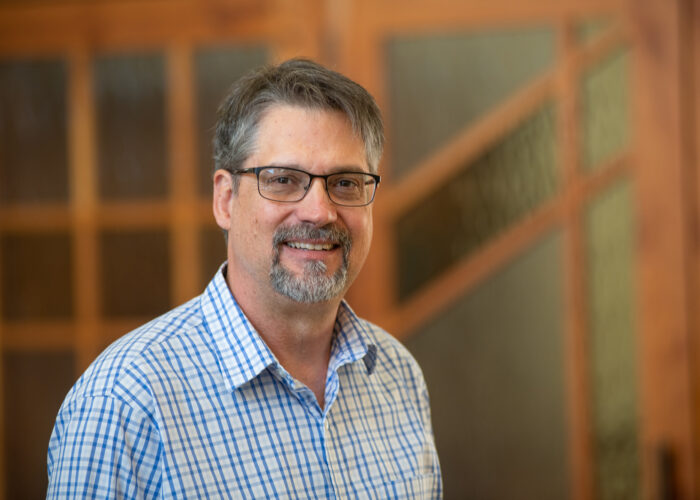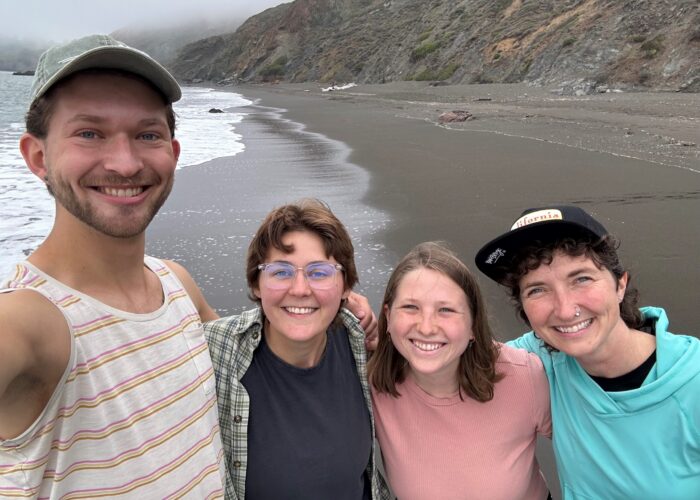April 27 is a holiday that holds incredible significance for South Africa. It’s Freedom Day. On my day off, I usually walk with long strides up the large hill I live on, remaining cautious of monkeys crossing the street. Reflective and thankful, I think of this day 22 years ago when 300 years of colonialism, segregation, and white minority rule ended, as Nelson Mandela established a new democratic government. Here I am, walking for my health and enjoyment, not realizing that I am walking in freedom. Just 22 years ago, I would not have been allowed in this neighborhood. This hill could only be seen from a distance. The strides I’m taking would have been held back by invisible shackles.
A few days later, I’m in my office attentively listening to the traumatic stories of the children I work with. I have been volunteering at Eastwood Primary School here in Pietermaritzburg, KwaZulu-Natal, as an expressive arts counselor/therapist/social worker with survivors of physical, emotional and verbal abuse, victims of neglect and trauma. Each tear that falls from their faces holds stories and pain. Where do we put this pain? How do we express it without them having to retell their story? Art. Expression. The pain they feel is intangible, but what if we could turn it into something tangible, something they could have full power over, something they could create? To serve as an example, I write a poem (from a child’s perspective) for the school. The poem is full of stories I’ve heard from children, as well as some experiences I have witnessed personally.
The colorful mind
Curious and kind, loving with an open mind,
three girls wander the school yard.
Fatima, Christina, and Ayanda.
It’s the first day of school, and it’s time for lunch,
holding hands, they call themselves the triplet bunch.
Mixing and mingling, kids from all corners,
there’s no such thing as race here, we’re all God’s daughters.
Pinky promise, we’ll always be best friends,
whispered Ayanda to the group as lunch time came to an end.
Holding hands while walking home,
the three girls skip, hop, jump along.
Home for the night and thrilled to share,
Fatima tells her dad of her triplet affair.
He pulls her aside and says no more of this talk,
you’re better than that, you must not hold hands while you walk.
You can speak if you want, but keep your distance,
they’re not our kind, they live across the fences.
Lunch time again and the triplets unite,
Fatima seems timid and decides to write,
sorry girls I can no longer hold hands,
my father says we must no longer be friends.
Christina grabs Ayanda, and says let’s go,
we’re no longer a triplet, but a duo.
She looks over her shoulder and begins to see,
all who like Fatima are together, suddenly.
No more mixing and mingling like on the first day,
what has happened to us, we’ve separated today.
Holding hands while walking home,
the two girls skip, hop, jump along.
Home for the night, sad to share,
Christina tells her mother of her duo affair.
She pulls her aside and says what were you thinking,
they’re not our kind, be careful with whom you’re linking.
You can speak if you want, but don’t get too close,
our religions don’t agree so be cordial at most.
Lunch time again, and the duo unites,
Christina seems unsure and decides to write,
sorry Ayanda, I can no longer hold hands,
my mother says we must no longer be friends.
She looks across the room and begins to see,
all who like like Christina are together, seemingly.
Mixing and mingling, has almost disappeared,
this is exactly what Ayanda had always feared.
Feelings of heartbreak and tears of sorrow,
Ayanda walks home alone and fears for tomorrow.
Home for the night, afraid to share,
she tells her mother and father,
her and Christina are no longer a pair.
They pull her aside and say you can hold hands while you walk,
with people whose hair looks like yours and whose skin seems dark.
Don’t get your hopes up and think you’ll blend,
you’ll never be accepted, it’s how the world will end.
Lunch time again, and the triplets can’t unite,
generations before them washing their minds white.
White and clean from the colorful first days,
the girls wish they could go back to holding hands underneath the sun’s rays.
I am the girl who watched from the corner,
who saw my elders poison the minds of God’s daughters.
Another generation affected by a colorless thought,
I decide to stand up and give it a shot.
This ends today, I scream to all the kids in the room,
we’re all God’s children, it started in the womb.
Color, religion, money or not,
we have to stick together, are you with me or not!?
Holding hands while walking home,
the three girls skip, hop, jump along.
Colorful minds, they refuse to be dull,
“We’re all God’s daughters,” whispered Ayanda to them all.



